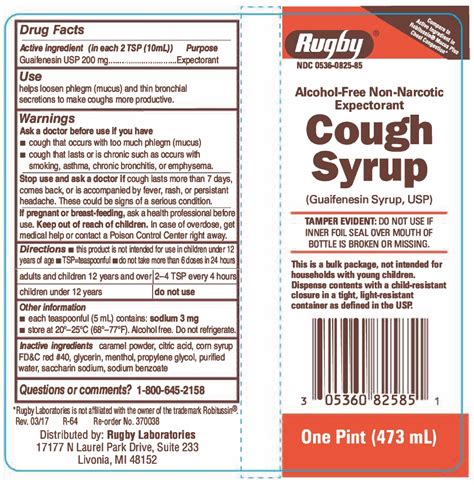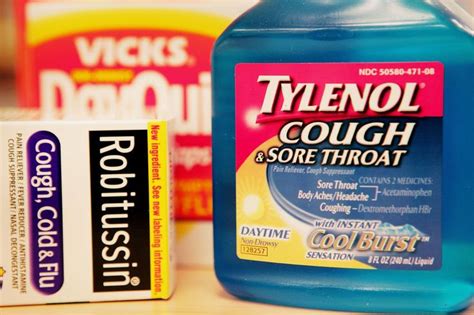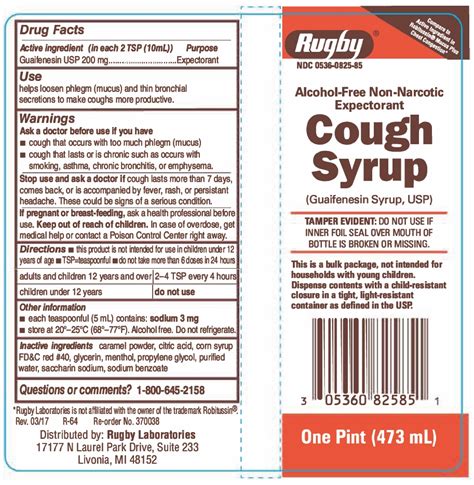Intro
Discover the best OTC cough medicine for relieving cough symptoms, sore throats, and congestion with effective ingredients like dextromethorphan, expectorants, and suppressants.
Coughing is one of the most common symptoms of a cold or flu, and it can be extremely uncomfortable. When you're feeling under the weather, all you want is some relief from that nagging cough. Over-the-counter (OTC) cough medicines can provide quick and effective relief, but with so many options available, it can be overwhelming to choose the best one. In this article, we'll explore the different types of OTC cough medicines, their ingredients, and what to look for when selecting the best one for your needs.
The importance of choosing the right OTC cough medicine cannot be overstated. Using the wrong medication can lead to ineffective relief, unwanted side effects, or even interactions with other medications you're taking. Furthermore, some OTC cough medicines may not be suitable for certain age groups, such as children or the elderly. By understanding the different types of OTC cough medicines and their ingredients, you can make an informed decision and find the best medication to help you feel better.
OTC cough medicines can be broadly classified into two categories: expectorants and suppressants. Expectorants, such as guaifenesin, help thin and loosen mucus, making it easier to cough up. Suppressants, such as dextromethorphan, work by suppressing the cough reflex, providing quick relief from persistent coughing. Some OTC cough medicines may also contain additional ingredients, such as pain relievers or decongestants, to help alleviate other symptoms associated with a cold or flu.
Types of OTC Cough Medicines

There are several types of OTC cough medicines available, each with its own unique ingredients and benefits. Some of the most common types of OTC cough medicines include:
- Cough suppressants: These medications work by suppressing the cough reflex, providing quick relief from persistent coughing.
- Expectorants: These medications help thin and loosen mucus, making it easier to cough up.
- Combination products: These medications combine multiple ingredients, such as a cough suppressant and an expectorant, to provide relief from multiple symptoms.
- Natural remedies: These medications use natural ingredients, such as honey or herbal extracts, to provide relief from coughing.
Ingredients to Look for
When selecting an OTC cough medicine, it's essential to read the label and look for ingredients that will provide the best relief for your symptoms. Some common ingredients to look for include:- Dextromethorphan: A cough suppressant that works by suppressing the cough reflex.
- Guaifenesin: An expectorant that helps thin and loosen mucus.
- Acetaminophen: A pain reliever that can help alleviate headaches and fever.
- Ibuprofen: A pain reliever that can help alleviate headaches and fever, as well as reduce inflammation.
Benefits of OTC Cough Medicines

OTC cough medicines can provide several benefits, including:
- Quick relief from coughing: OTC cough medicines can provide fast and effective relief from persistent coughing.
- Relief from other symptoms: Many OTC cough medicines contain additional ingredients, such as pain relievers or decongestants, to help alleviate other symptoms associated with a cold or flu.
- Convenience: OTC cough medicines are widely available and can be purchased without a prescription.
- Cost-effective: OTC cough medicines are often less expensive than prescription medications.
Steps to Follow When Taking OTC Cough Medicines
When taking OTC cough medicines, it's essential to follow the instructions on the label and take the medication as directed. Here are some steps to follow:- Read the label: Before taking an OTC cough medicine, read the label and look for ingredients that will provide the best relief for your symptoms.
- Take the recommended dose: Take the recommended dose of the medication, and do not exceed the recommended dosage.
- Follow the instructions: Follow the instructions on the label, and take the medication as directed.
- Monitor your symptoms: Monitor your symptoms, and if they persist or worsen, consult with a healthcare professional.
Practical Examples and Statistical Data

According to the National Institutes of Health, coughing is one of the most common symptoms of a cold or flu, affecting millions of people each year. In fact, a study published in the Journal of Clinical Pharmacology found that OTC cough medicines can provide effective relief from coughing, with 70% of participants experiencing significant improvement in their symptoms.
Here are some practical examples of OTC cough medicines and their ingredients:
- Robitussin: A cough suppressant that contains dextromethorphan.
- Mucinex: An expectorant that contains guaifenesin.
- DayQuil: A combination product that contains acetaminophen, dextromethorphan, and guaifenesin.
LSI Keywords and Synonyms
When searching for OTC cough medicines, you may come across several LSI keywords and synonyms, including:- Cough syrup
- Cough medicine
- Expectorant
- Suppressant
- Cold medicine
- Flu medicine
SEO Optimization and Readability

To ensure SEO optimization and readability, it's essential to use short paragraphs, bullet points, and numbered lists. Here are some tips:
- Use short paragraphs: Break up long paragraphs into shorter ones to improve readability.
- Use bullet points: Use bullet points to list ingredients, benefits, and steps to follow.
- Use numbered lists: Use numbered lists to provide practical examples and statistical data.
Conclusion and Final Thoughts
In conclusion, OTC cough medicines can provide quick and effective relief from coughing, as well as other symptoms associated with a cold or flu. By understanding the different types of OTC cough medicines, their ingredients, and what to look for when selecting the best one, you can make an informed decision and find the best medication to help you feel better. Remember to always read the label, follow the instructions, and monitor your symptoms to ensure safe and effective use of OTC cough medicines.What is the best OTC cough medicine for a dry cough?
+The best OTC cough medicine for a dry cough is a suppressant that contains dextromethorphan. Examples include Robitussin and Delsym.
What is the best OTC cough medicine for a wet cough?
+The best OTC cough medicine for a wet cough is an expectorant that contains guaifenesin. Examples include Mucinex and Guaifenesin.
Can I take OTC cough medicine with other medications?
+It's essential to consult with a healthcare professional before taking OTC cough medicine with other medications, as interactions can occur. Always read the label and follow the instructions.
We hope this article has provided you with valuable information and insights into the world of OTC cough medicines. If you have any further questions or comments, please don't hesitate to share them with us. Remember to always prioritize your health and safety, and consult with a healthcare professional if you have any concerns or questions.
